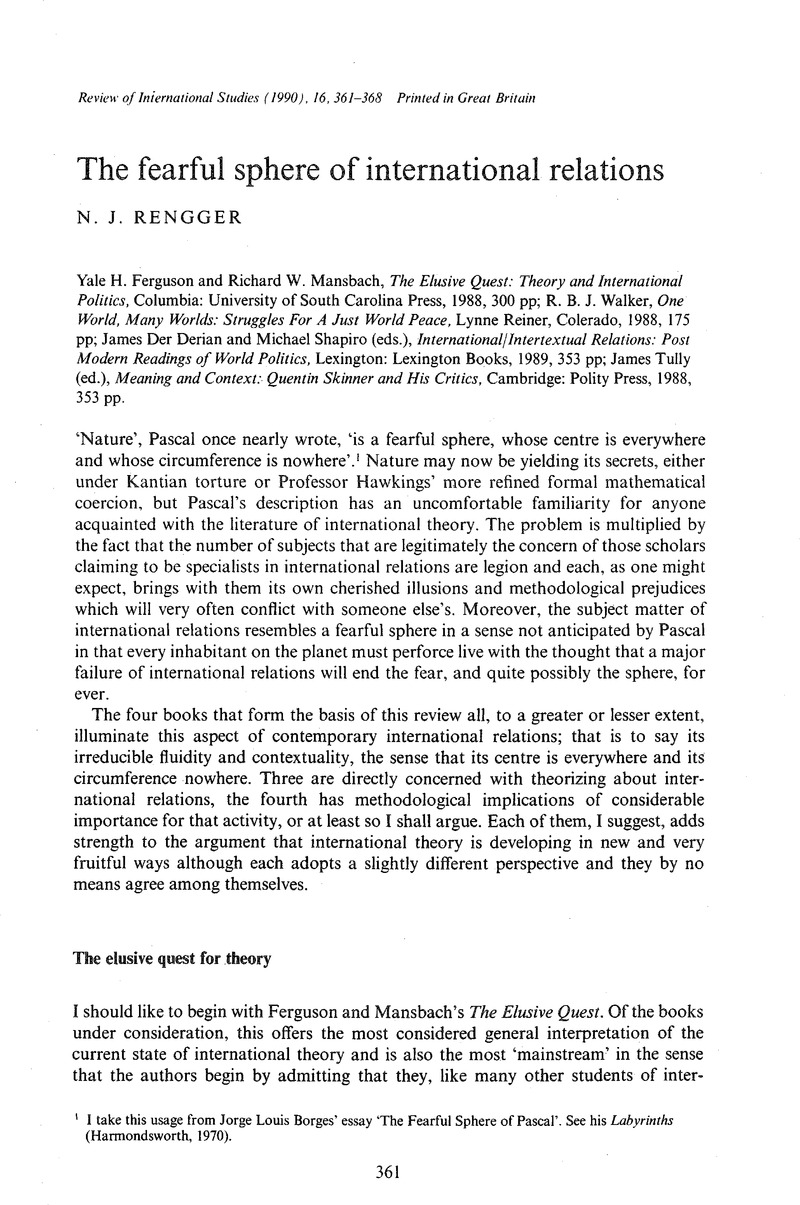Article contents
The fearful sphere of international relations - Yale H. Ferguson and Richard W. Mansbach, The Elusive Quest: Theory and International Politics, Columbia: University of South Carolina Press, 1988, 300 pp; - R. B. J. Walker, One World, Many Worlds: Struggles For A Just World Peace, Lynne Reiner, Colerado, 1988, 175 pp; - James Der Derian and Michael Shapiro (eds.), International/Intertextual Relations: Post Modern Readings of World Politics, Lexington: Lexington Books, 1989, 353 pp; - James Tully (ed.), Meaning and Context: Quentin Skinner and His Critics, Cambridge: Polity Press, 1988, 353 pp.
Published online by Cambridge University Press: 26 October 2009
Abstract

- Type
- Review articles
- Information
- Copyright
- Copyright © British International Studies Association 1990
References
1 I take this usage from Jorge Louis Borges' essay ‘The Fearful Sphere of Pascal’. See his Labyrinths (Harmondsworth, 1970).
2 See, for example, Hollis, Martin and Smith, Steve ‘Roles and Reasons in Foreign Policy Decision Making’ in the British Journal of Political Science (1986). See also their jointly authored book, Explaining and Understanding in International Relations (Oxford, 1990).Google Scholar
3 See my ‘Going Critical? A response to Hoffman’ in Millenium; Journal of International Studies 17, no. 1 (spring 1988). See also N. J. Rengger and Mark Hoffman ‘Modernity, Post Modernism and International Relations’ in Mo Malek (ed.). Post-Modernism and The Social Sciences (forthcoming).
4 See my ‘Incommensurability, International Theory and The Fragmentation of Western Political Culture’, in J. Gibbins (ed.), Contemporary Political Culture (London, 1989).
- 2
- Cited by




